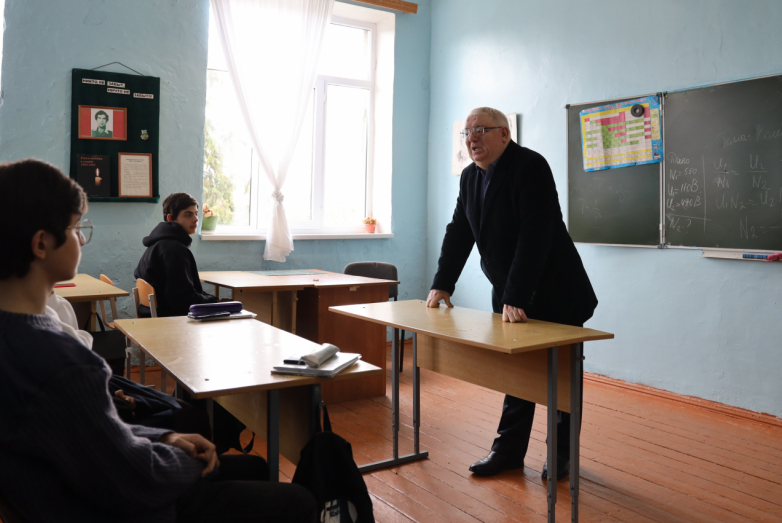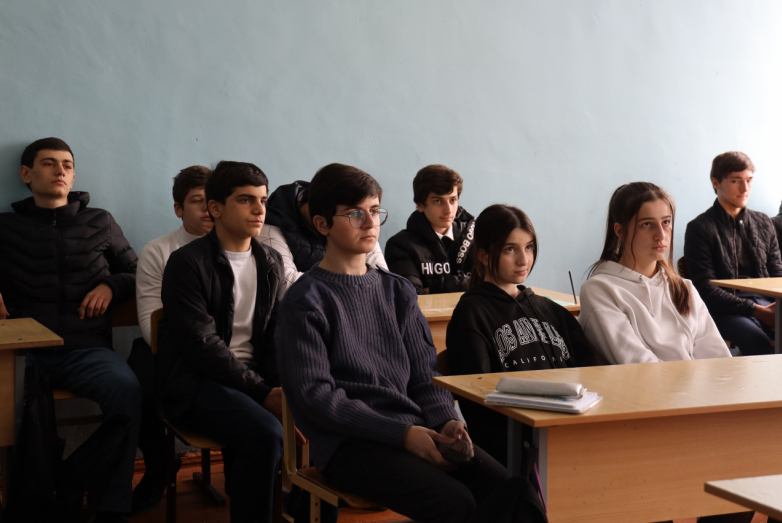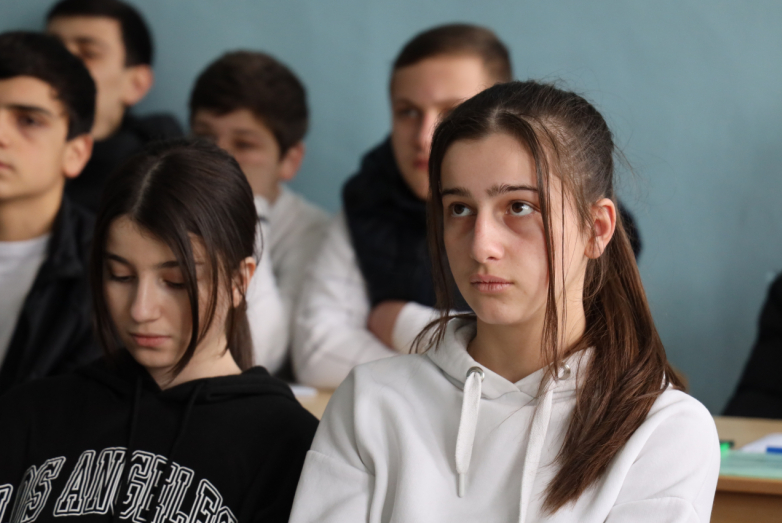A new project on ethnographic lectures for students of rural schools was launched by the World Abaza Congress in cooperation with the Abkhazian State University.
The Department of the World Abaza Congress for work with local branches has begun work on a new project on ethnographic lectures together with the Abkhazian State University.
The first lecture of the project was held at Eshera Secondary School on Friday 10 March.
Soslan Salakaya, Associate Professor of the Department of History, Archeology and Ethnology at the Abkhazian State University, was invited to the first pilot lecture on the history of Abkhaz-Abaza relations.
According to Salakaya, it is necessary to hold extracurricular activities with schoolchildren on the history and culture of Abkhazia in order to awaken their interest in studying history on their own.
"It is symbolic that we held the first lecture within the framework of the project at the school where the historian, scientist, the first President of the Republic of Abkhazia Vladislav Ardzinba studied. Students of the Eshera Secondary School and all other schools in Abkhazia should follow the example of our first president in their desire to study and know the history of our Motherland," he said.
Associate Professor of ASU noted the activity of schoolchildren and their desire to discuss the topics presented.
"The topic of the first lecture was the history of Abkhaz-Abaza relations. We talked about the history of the origin of the ethnic group and the historical fate of the Abkhazians and Abaza. The students were actively involved in the process, shared their knowledge and asked questions. I think that thanks to the new interactive format, it will become even more interesting for schoolchildren to study the history and culture of Abkhazia," he added.
Dmitry Zhiba, head of the WAC Department for work with local branches, noted that at this stage the project would be implemented for high school students in rural schools.
"The new project of the World Abaza Congress will consist of a series of lectures on the history, ethnology, ethnography and culture of Abkhazia. As part of the cycle, high school students in rural schools will be told about the history of Abkhazia from ancient times to the present day in an interactive form. Lecturers will try to involve students in the learning process and interact with them. We believe that in the future, such an approach will interest schoolchildren in studying the history and culture of our country," Zhiba said.
According to Zhiba, teachers of higher educational institutions of Abkhazia, as well as prominent figures of science and culture will be involved in the course of ethnographic lectures.
"Historians, ethnographers and ethnologists will be involved in the lectures. They will share their scientific knowledge in the field of the history and culture of the Abkhazian people with the younger generation," he added.
The head of the Eshera Secondary School, Fatima Sakania, noted the importance of the new educational project of the WAC.
"As you know, the educational process contains many difficulties and sometimes one school curriculum is not enough to arouse schoolchildren's interest in an in-depth study of Abkhazian history and culture. As part of the lectures, teachers will use the discussion format and this will help students to adopt the knowledge and experience of specialists," she said.
Sakania noted that the interactive lecture format, which is new for schoolchildren, would further arouse the desire to study the history of Abkhazia on their own and more deeply.
In total, within the framework of the cycle of ethnographic lectures, six educational meetings are planned before the end of the academic year. Further implementation of the project will be based on interaction with local branches in the villages of Abkhazia.



to login or register.